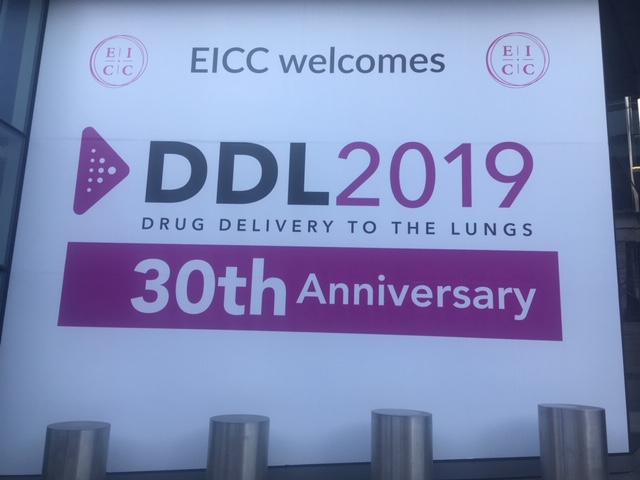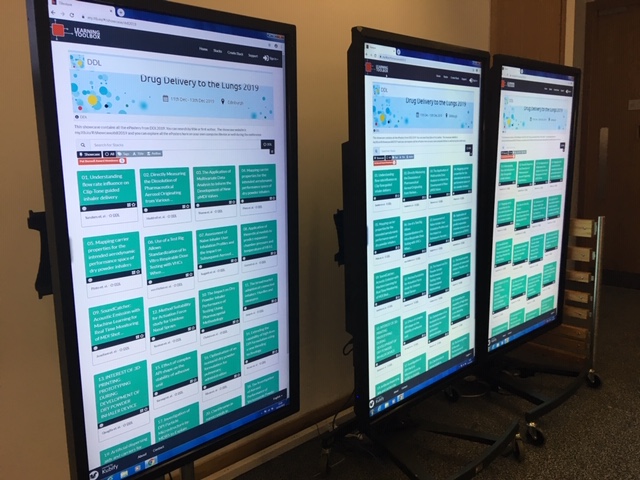
For the second year in a row, the annual Drug Delivery to the Lungs meeting drew more than 850 OINDP specialists and 110 exhibitors to the Edinburgh International Conference Centre to catch up on the latest in inhalation research and technology. Much of the meeting focused on issues of sustainability, with discussion centered on reducing the carbon footprint of inhalers, on insuring the future of inhalation research, and on the demonstrated sustainability of DDL itself as the meeting celebrated its 30th year.
Greening the meeting

Conference Chair Gary Pitcairn noted that DDL has taken several steps to reduce the carbon footprint of the conference, including the elimination of paper delegate lists, memory sticks, and promotional literature provided to attendees, with much of the information moved to the conference mobile app. The printed conference proceedings were also reduced in size. In addition, the organizers tested out the use of e-posters that allowed delegates to view any of the 87 scientific posters on a touch screen.
DDL 2019 also explicitly devoted its first podium session to the “FUTURE OF THE PLANET: Pollution and the environment,” and many of the speakers in this session offered reactions to a recent UK controversy about the carbon footprint of pressurized metered dose inhalers and to the news that Chiesi has committed to bringing an HFA 152a MDI to market by 2025.
An article published in BMJ Open at the end of October that addressed the potential carbon savings of switching from MDIs to DPIs set off renewed heated discussions in the UK press and social media about whether patients should be switched to DPIs for the sake of the environment, a position that had been advocated by the NHS in its Long Term Plan per a recommendation by the UK Environmental Audit Committee (UKEAC) in a 2018 report that “The NHS should set a target that by 2022 at least 50% of prescribed inhalers are low GWP.”


